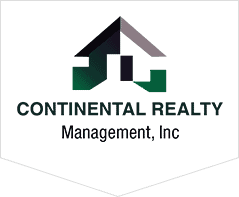Real estate has produced a lot of the world’s wealthiest people and still continues to do so, which makes it a sound investment in the eyes of many. However, success in this field doesn’t come overnight. You better arm yourself with enough knowledge as a starting point if you want to be profitable. To help you get started, below are 10 tips to check out before you buy your first rental property.

Make sure you’re up to the challenges and responsibilities being a landlord entails.
Being a landlord isn’t only about getting tenants and collecting rent as most people think. As a landlord, you should also be ready to pick that toolbox up and work on minor repairs, especially if this is your first rental property. Sure, you can always call a pro to get anything fixed, but take note that those expenses can eat into your profits. This of course changes as you add more properties to your portfolio, but being able to attend to minor repairs could be a great starting point for your real estate business. At some point, it will probably make sense to free up more of your personal time for management instead of repair work. That’s when hiring a property manager might make a lot of sense.
Settle your debts first.
Seasoned investors sure do carry debt as part of their investment portfolio. However, average and first time investors should avoid this. If you have existing loans such as student loans or unpaid medical loans, then purchasing a rental property may not “yet” be for you. Paying off your debts should be a priority before you start investing in real estate. It may not be necessary though to pay off debts first if the return from your real estate investment is greater than the cost of debt, so be sure to check the numbers. But you need to ensure that you don’t put yourself into a position where you no longer have enough funds to make payments on your debts.
Prepare your down payment.
Purchasing an investment property requires a higher down payment, as high as 20%, as compared to owning a home for yourself which only requires you around 3% of the total cost. This also means that there are more stringent approval requirements in place, so be ready with a big bunch of cash outflow.

Beware of high-interest rates.
The cost of borrowing money is relatively cheap nowadays, but you need to take note that the interest rate on investment properties will be higher than traditional mortgage interest rates. So, it’s important that you do the math and ensure your monthly mortgage payment won’t eat a significant amount of your monthly profits.
Calculate your margins.
Individual real estate investors should aim for at least a 10% return on investment. You should also set aside 1% of the property value for maintenance costs annually. Many of our clients setup a bank account specifically to pay for repairs and maintenance. On top of that, other possible costs you need to consider are as follows:
- Insurance
- Homeowners association fees
- Property taxes
- Monthly miscellaneous expenses like pest control and landscaping equipment
No to a fixer-upper.
It may sound like such a nice idea to purchase a house that you can get at a bargain and then flip it into a rental property. However, for first-time real estate investors, this should actually be avoided. Why? Because flipping a fixer-upper house into an ideal rental property may require huge funds for renovation. Instead of looking for a fixer-upper house, find a property priced below the market that needs only minor repairs.
Don’t forget your operating expenses
New rental properties often require operating expenses that range from 35 to 80% of your gross operating income. So, for example, you charge $1,500 for rent, and you spend $600 per month, then you’re at 40%. But to make things a lot easier, you may want to use the 50% rule. So if you charge $1,500 per month, expect to spend around $750 for your operating expenses.

Determine your return on investment.
Stocks offer around 7.5% cash-on-cash return while bonds may give out 4.5%. In real estate, you can expect a 6% return in your first year which should rise over time. That’s just based on historical averages and not meant to be taken as investment advice.
Purchase a low-cost home.
Experts recommend that first-time real estate investors purchase a home priced around $150,000 since the more expensive the property is, the higher the operating expenses will be.
Look for the right location.
Find a rental property located in a place with low property taxes that has a low crime rate and an area with a growing job market. A place with plenty of amenities and recreational areas like parks, malls, and restaurants would also be a great asset for your rental property.
There you go! We hope that those 10 tips will help you get a good start on your first real estate investment. Good luck!

Recent Comments